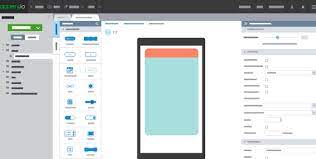Software development and consulting are two essential components of the modern business world. With the rapid pace of technological innovation, companies must adapt to stay competitive. This is where software development and consulting come into play.
Software development is the process of designing, creating, and maintaining software applications for a variety of purposes. It involves everything from writing code to testing and debugging. Software developers use programming languages such as Java, Python, C++, and many others to create applications that can run on different platforms such as mobile devices, desktops, and web browsers.
However, software development is not just about coding. It also involves understanding the needs of the client and developing solutions that meet those needs. This is where software consulting comes in.
Software consulting involves working with clients to identify their needs and develop customized solutions that meet those needs. Consultants work closely with clients to understand their business processes, identify areas for improvement, and develop strategies to implement new technology solutions.
The benefits of software development and consulting are numerous. For one, it can help companies streamline their operations by automating manual processes. This can save time and reduce errors while increasing productivity.
In addition, software development can help companies stay ahead of the competition by providing innovative solutions that improve customer experience or increase efficiency. For example, a company might develop a mobile app that allows customers to order products directly from their smartphones.
Finally, software development and consulting can help companies save money by reducing costs associated with manual labor or outdated technology systems. By streamlining operations through automation or implementing new technology solutions, businesses can operate more efficiently while reducing expenses.
In conclusion, software development and consulting are vital components of modern business operations. They allow companies to stay competitive in an ever-changing technological landscape while improving efficiency and reducing costs. Whether you’re a small startup or a large corporation, investing in software development and consulting can help take your business to the next level.
5 Essential Tips for Successful Software Development and Consulting
- Stay up-to-date on industry trends
- Have a solid understanding of the client’s needs
- Communicate regularly with your clients
- Practice good documentation
- Be proactive about problem solving
Stay up-to-date on industry trends
As the world of software development and consulting continues to evolve at a rapid pace, it’s essential to stay up-to-date on industry trends. Keeping up with the latest technologies, programming languages, and best practices can help you stay competitive and provide the best possible service to your clients.
One way to stay up-to-date is by attending conferences and industry events. These events offer opportunities to learn from experts in the field, network with other professionals, and get a firsthand look at emerging technologies.
Another way to stay current is by reading industry publications and blogs. These resources can provide valuable insights into new developments in software development and consulting, as well as tips and tricks for improving your skills.
Additionally, it’s important to continually seek out training and professional development opportunities. This could include taking online courses or attending workshops on new programming languages or emerging technologies.
By staying up-to-date on industry trends, you can ensure that you’re providing your clients with the most innovative solutions possible. You’ll also be better equipped to compete in a crowded marketplace and position yourself as a leader in your field.
In conclusion, staying current on industry trends is essential for anyone working in software development and consulting. By attending conferences, reading industry publications, and seeking out training opportunities, you can stay ahead of the curve and provide your clients with cutting-edge solutions that meet their needs both today and into the future.
Have a solid understanding of the client’s needs
When it comes to software development and consulting, having a solid understanding of the client’s needs is crucial. Without a clear understanding of what the client wants, it’s impossible to develop effective solutions that meet their needs.
The first step in understanding the client’s needs is to listen carefully to what they have to say. This involves asking questions, clarifying any ambiguities, and taking notes. It’s important to be patient and attentive during this process, as it can take time for clients to articulate their needs clearly.
Once you have a good understanding of the client’s needs, it’s important to document them in detail. This includes everything from functional requirements to non-functional requirements such as performance and security. By documenting these requirements, you can ensure that everyone involved in the project has a clear understanding of what needs to be delivered.
Another important aspect of understanding the client’s needs is managing expectations. It’s important to be honest with clients about what can and cannot be achieved within a given timeframe or budget. This helps avoid misunderstandings and ensures that everyone is on the same page.
In conclusion, having a solid understanding of the client’s needs is essential for successful software development and consulting projects. By listening carefully, documenting requirements in detail, and managing expectations effectively, you can develop solutions that meet your client’s needs while staying within budget and delivering on time.
Communicate regularly with your clients
Communication is key to any successful software development and consulting project. Regular communication with clients ensures that everyone is on the same page, and any issues or concerns can be addressed in a timely manner.
Regular communication also helps build trust between the software development team and the client. Clients want to feel involved in the process and know that their feedback is being heard. By keeping them informed of progress and involving them in decision-making, you can build a stronger relationship with your clients.
One way to ensure regular communication is to set up regular meetings or check-ins with your clients. This can be done in person, over the phone, or through video conferencing. These meetings should be scheduled at regular intervals throughout the project timeline, so everyone stays informed of progress made.
Another way to encourage regular communication is to use project management tools such as Trello or Asana. These tools allow for real-time collaboration between team members and clients, making it easy to share progress updates and receive feedback.
In conclusion, communicating regularly with your clients is essential for successful software development and consulting projects. It helps build trust, keeps everyone informed of progress made, and ensures that any issues or concerns are addressed promptly. By incorporating regular communication into your project management strategy, you can improve client satisfaction and ultimately deliver better results.
Practice good documentation
When it comes to software development and consulting, one of the most important tips to keep in mind is to practice good documentation. Documentation refers to the process of creating written records of a project’s design, development, and testing phases.
Good documentation is essential for several reasons. First and foremost, it helps ensure that everyone involved in the project is on the same page. By documenting every step of the process, developers and consultants can ensure that everyone has access to the same information and understands what needs to be done.
Additionally, good documentation can help prevent errors and mistakes. When developers have clear instructions and guidelines to follow, they are less likely to make mistakes or overlook important details.
Finally, good documentation is critical for future reference. If a problem arises after the project is completed or if updates need to be made down the line, having clear documentation can make all the difference in resolving issues quickly and efficiently.
So how can you practice good documentation? There are several key steps you should take:
- Start early: Begin documenting your project as soon as possible. Don’t wait until you’re knee-deep in code or design work before you start thinking about documentation.
- Be thorough: Document every step of the process – from initial planning through final testing – so that anyone who needs to reference your work has all the information they need.
- Use clear language: Write your documentation using plain language that is easy for others to understand.
- Keep it organized: Use headings, subheadings, bullet points, and other formatting techniques to keep your documentation organized and easy to navigate.
- Update regularly: Make sure you update your documentation as needed throughout the project so that it remains accurate and up-to-date.
By practicing good documentation habits throughout your software development or consulting project, you can help ensure its success while also making life easier for yourself and others down the line.
Be proactive about problem solving
When it comes to software development and consulting, being proactive about problem solving is a key tip for success. In today’s fast-paced business world, problems can arise at any moment, and it’s essential to address them quickly and efficiently.
Being proactive means anticipating potential problems before they occur and taking steps to prevent them from happening. It also means having a plan in place for when problems do arise, so you can quickly resolve them and minimize any negative impact on your business.
One way to be proactive about problem solving is to conduct regular audits of your software systems. This involves reviewing your codebase, identifying areas that may be prone to errors or vulnerabilities, and taking steps to address those issues before they become major problems.
Another way to be proactive is to stay up-to-date with the latest trends and technologies in software development. By staying informed about new tools and techniques, you can identify potential solutions to problems before they even occur.
Additionally, being proactive about problem solving means fostering a culture of collaboration within your team. Encouraging open communication and brainstorming sessions can help identify potential issues early on and allow team members to work together to find solutions.
In conclusion, being proactive about problem solving is an essential tip for success in software development and consulting. By anticipating potential issues, staying informed about new technologies, conducting regular audits of your systems, and fostering a collaborative team environment, you can minimize the impact of problems on your business and ensure long-term success.



